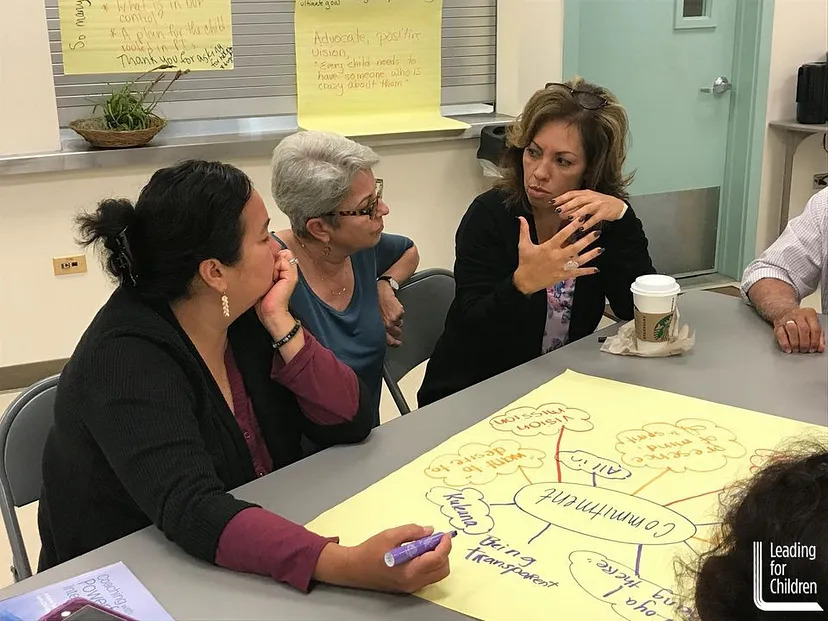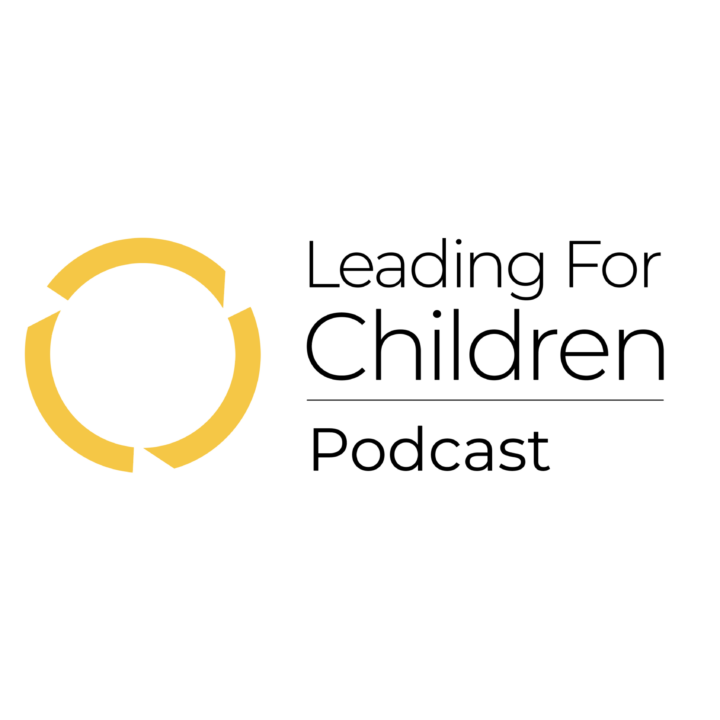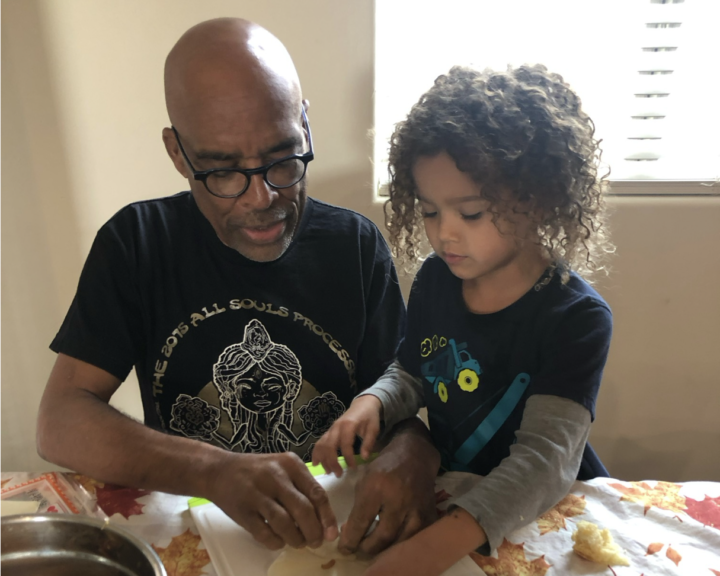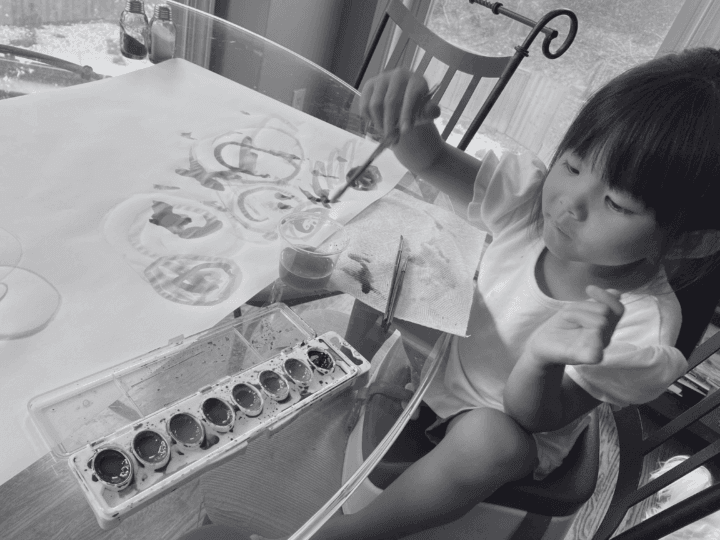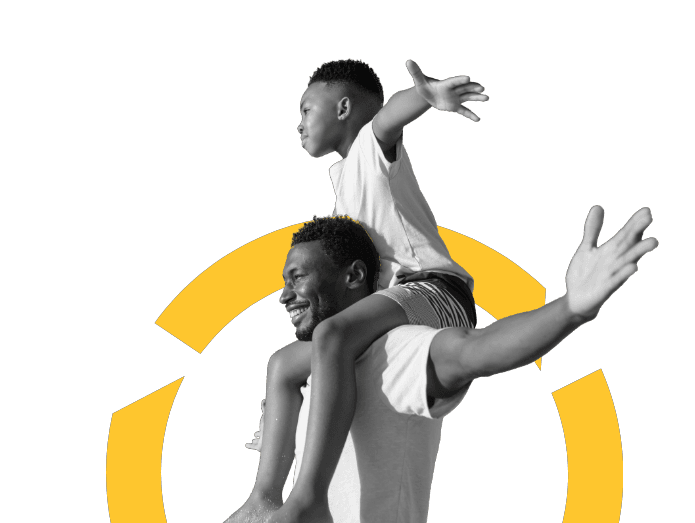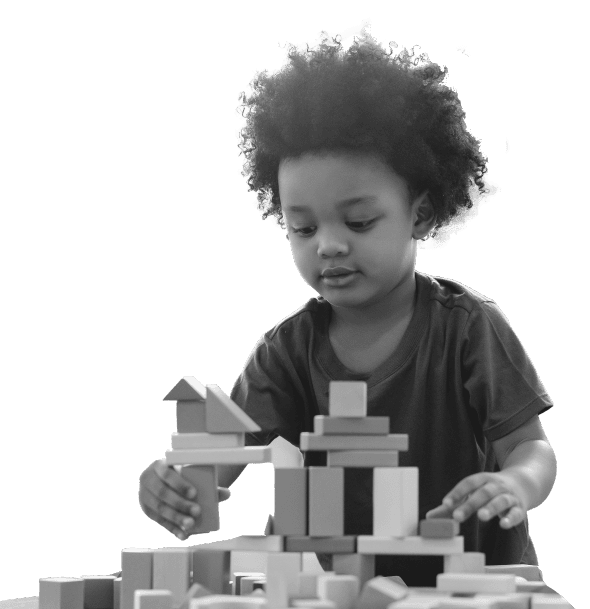By Judy Jablon and Nichole Parks
This month at Leading for Children, we’ve been exploring the LFC Facilitation Method. Our method promotes equity through two key principles:
1. The wisdom and experience of the group’s members is the basis for all learning.
2. We create safe spaces that allow every voice to be included and belong in the conversation.
As part of our exploration, Nichole and Judy hosted two national convenings bringing together Leading for Children’s partners from across the country to discuss the LFC Facilitation Method. We learned with and from each other about the subtle techniques that allow each voice to be heard, and how the facilitator creates the safe and brave space that results in self-empowerment and equitable partnerships.
Sarah Zawacki, our Assistant Director for Impact and Outreach, participated in both convenings and wrote this blog to describe her experience.
As a student, I could feel my heart sink as I glanced over a syllabus and saw that “participation points” counted for 25% of my grade. I did the reading, but I dreaded the moment I would have to speak up in class. No matter how much I prepared, how many times I mentally rehearsed my contribution, there would always be someone with a smarter comment, more fluent delivery. The environment instilled a sense of competition — a drive to be the “best” rather than to have a dialogue, to try out ideas, to get things wrong, and ultimately to arrive at new understandings, together.
It was only when I started working with Leading for Children, where my role is to analyze program impact, that I began to see alternate ways to create and experience learning environments. LFC fosters respect, equity, and shared leadership among adults across the early learning ecosystem, laying the groundwork for quality for children. The approach is based on the understanding that adults can only create warm, responsive environments for children when they have experienced these environments themselves. LFC creates the space for these adult-adult interactions to take place, where every adult — regardless of identity, background, or experience — feels that they can join the conversation in equal standing to all others.
Yet when we are so accustomed to living within systems built on hierarchies (and modulating our behavior based on our perceived positions), how does LFC’s approach ensure that everyone truly does have a voice?
To experience the LFC Facilitation Method, I attended two national convenings. Each began with the “Carousel Technique”: a conversational structure that invites members to reflect and share. There are basic guidelines: after the facilitator offers a prompt, everyone takes a few minutes to reflect and write down their ideas. Then, each group member takes a turn to share what they wrote, and everyone notes down all other contributions. As I wrote, I noticed patterns, common words and phrases, and subtle differences in expression that point to the diversity of experiences in the group. Some members looked internally at how the facilitated space allowed them to feel comfortable in expressing their thoughts and feelings, without fear of judgment. Others looked externally at their role in listening and inviting new perspectives. The challenge, I found, was to avoid the temptation to change my response based on what I was hearing from others. The goal is to trust in the value of your ideas.
The group reflected together on the question of how the LFC Facilitation Method encourages equitable partnerships. Responses spoke to unique perspectives, but also to a common vision. One member shared how “the facilitator and group members are learning partners.” The next response also considered the relationship between the facilitator and the group, though through a different lens: “the Facilitation Method allows facilitator and group members to share power.” As learning partners, facilitators and group members support each other in building knowledge, and by sharing power, they help to ensure that changes stemming from this knowledge will be felt equitably by all. Even when members’ contributions appear similar, each adds a layer of nuance to the picture that is taking shape.
During the convening, and after everyone had spoken, the facilitator asked, “Is there anything new that you’re noticing?” I thought about the choice of language: by focusing on noticing rather than on knowing, the question keeps the space inclusive. Anyone can notice something new. The group took a moment to acknowledge others’ ideas by reading back their notes, thinking holistically about the experience and the sum of ideas. One member noticed how listening to the full range of contributions from the group created a sense of shared understanding and cohesiveness: “When we open ourselves to multiple perspectives, it provides an opportunity to create a place of belonging and to create a community where everyone feels that they belong.”
This idea of belonging sticks with me. On a personal level, I feel myself letting go of the ever-present fear that I’ll stumble over my words or fail to make my point understood. Yet I also feel a new appreciation for the ideas of the group, and I see how each contribution is significant, not necessarily because it’s the “smartest” idea, but in the way it shapes a collective wisdom and vision. I ask myself what creates this perspective shift, and two words come to mind: time and space. In the facilitated conversation, there is time to think, to write, to listen and reflect, to take in what others are saying and ask yourself how it makes you feel. It allows you to act and express yourself with intention. In the reflective pauses, a new quality of space takes shape, where each group member cares what others have to say, and each feels this collective care radiating toward them. As one of the group members shared, “equity is in taking time to listen and respond.”
